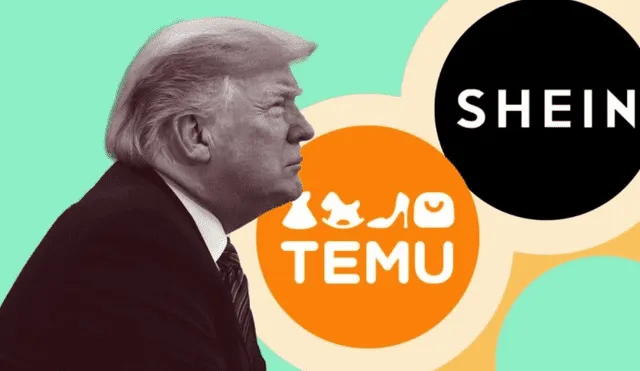Shein and Temu: Prices rise ahead of new 120% tariffs in the United States
The Temu and Shein platforms raised the prices of several products in anticipation of the imminent end of the tariff exemption for low-value shipments. The measure could have a particular impact on lower-income consumers.

E-commerce platforms Temu and Shein began raising prices on several of their products on Friday, in anticipation of the planned 120% tariffs imposed next week. These increases come after notifying their customers in advance of the impending cost increase stemming from the end of the so-called "de minimis" exemption, which allowed tariff-free imports for orders under $800.
This benefit, which expires on May 2 under a recent executive order from president Donald Trump, has so far allowed these companies to maintain low prices on products from China. In examples reviewed by CNN, items such as lawn chairs and swimsuits nearly doubled in price in 24 hours. However, not all products increased; some even decreased, reflecting common fluctuations in digital pricing.
Impact on consumers and company response
Both Shein and Temu issued similar statements to their users, explaining that the price increases are due to new tariffs and changes in international trade regulations. The companies assured that they seek to minimize the impact on customers and maintain product quality, although they acknowledged that operating costs have increased.
Consumers were encouraged to place their purchases before April 25 to avoid the new prices, although it has not been confirmed whether orders placed before that date will be exempt if they arrive after May 2. Additionally, Temu experienced temporary outages on its platform on Friday morning, with several products marked as out of stock.

Temu and Shein are one of the leading online stores around the world. Photo: ChanelNews
Consequences for low-income households
According to recent studies, the end of the tariff exemption will disproportionately affect lower-income US households. A report by the Trade Partnership Worldwide revealed that these households spend a higher percentage of their income on clothing, making the higher price of products on Shein and Temu have a direct impact on their daily finances.
Researchers from UCLA and Yale observed that nearly 48% of packages exempt from tariffs under the "de minimis" rule were sent to lower-income zip codes, compared to only 22% in wealthier areas of the country. The change in trade policy could, therefore, increase the economic burden on the most vulnerable consumers in the US.













